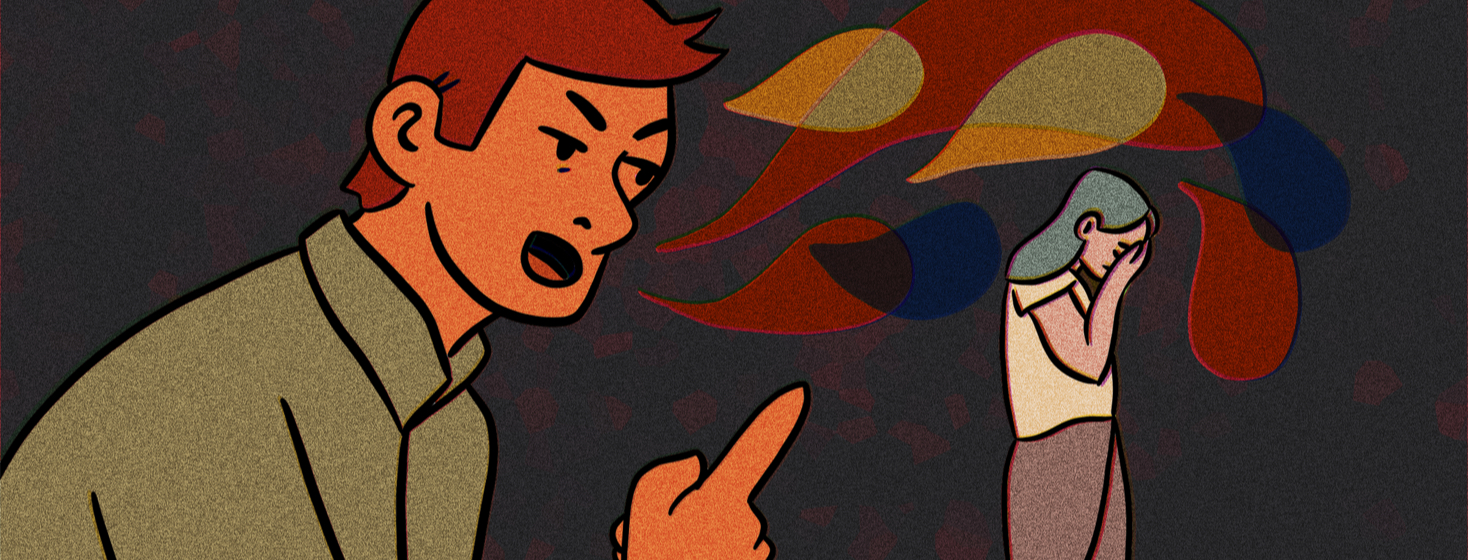How Domestic Abusers Might Weaponize Your Menstrual Cycle Against You
Content warning: this article discusses controlling partners, financial abuse, and other abusive behaviors. Please read with care. If you think you or a loved one may be in an abusive relationship, please use resources like the National Violence Domestic Hotline to help.
Every year, 10 million people in the United States report experiencing domestic violence.1
The actual number is likely much higher since many people suffer in silence, unable to safely escape an abusive relationship. Domestic violence can impact any person of any gender, but women are, statistically, most at risk.1
Abusers use many tactics to isolate and harm their partners. For example, an abusive partner may even use their girlfriend’s period to control and shame her.
Periods and financial control
Financial abuse is one common form of domestic violence. A financial abuser will take control of their partner’s resources, controlling exactly how and when the family spends money.
The financial abuser may insist that the couple join their finances because their partner isn't savvy enough to handle them or because it would be simpler to share a bank account.
However, that abuser may soon refuse to give their partner access to money; they may demand to see receipts from every shopping trip, or they may deprive their partner of the opportunity to get a job and make their own money.
Financial abuse mixed with period poverty makes a dangerous mix. Menstrual hygiene items can be expensive. Many women spend between $150 and $200 yearly on tampons and pads.2
Women with endometriosis may spend significantly more because they may bleed through their pads and tampons quicker than those with a lighter flow. These pads and tampons are essential investments in a woman's freedom. If a woman cannot purchase menstrual hygiene products, she cannot easily leave her home and go out in public during her period without staining her clothing.
Unfortunately, many women cannot afford to purchase the hygiene products they need every month, and food stamps don’t cover pads or tampons.3
This economic disparity is called period poverty and impacts millions of people daily.
Financial abuse can perpetuate period poverty. Even if a couple has enough money to afford period products, an abuser may not allow their partner to buy the products they need. The abuser may insist their partner save money by rationing how many pads or tampons they use. Alternatively, they may demand that the partner opts for less expensive options like cardboard applicators versus plastic applicators.
If that woman has an endometriosis flare, their partner may blame her for “wasting” money when she tries to purchase super absorbent pads or when she has to use more tampons than usual.
Endometriosis medical bills can also be expensive, especially since patients often endure years of medical exams and doctor's visits before they are even diagnosed. A controlling person may prevent their partner from signing up for health insurance or going to a gynecologist.
An article in the Journal of Internal Medicine explains that around 5% of women feel like their partner interferes with their medical treatment. Abusive people may hesitate to let their partners go to the doctor because many medical professionals are trained to recognize bruises and other potential indicators of domestic violence.4
Period shame and stigma
Another technique in the abuser’s toolbox is shame. Many women can struggle with period stigma.
These stigmas may remind us that we are weak if we complain about our cramps, that our blood is disgusting, and that we should try to smile through the pain and hide the fact that we are on our period. An abusive person may impose similar ideas on their partner.
One of my friends escaped from a years-long abusive relationship. She explained that her boyfriend began criticizing her and tearing down her self-esteem. She has endometriosis and said that these criticisms became especially barbed when she was on her period.
Her boyfriend would yell at her if she accidentally bled on their bed sheets. He called her a prude when she didn't want to have sex because of her period cramps.
But when she did want sex, he called her “gross and fat” because of her bloated abdomen. These comments steadily broke down her sense of self-worth until she found the support she needed to leave this relationship.
Now, she is in a healthier relationship. She says, "My new boyfriend never makes me feel like I have to apologize for my body. The other night, my period came early, and I had worn his boxer briefs to bed and accidentally stained them. I felt like crying, but he didn't yell or blame me."
She says, "My periods hurt me enough. It feels so much better not to have a boyfriend who is intentionally using those periods to try to hurt me emotionally, too."
How to seek help
Being in an abusive relationship can feel scary, but know that you are not alone. The National Violence Domestic Hotline can help you stay safe. You can text, chat, or call the hotline for free, 24/7, at 800-799-7233.

Join the conversation